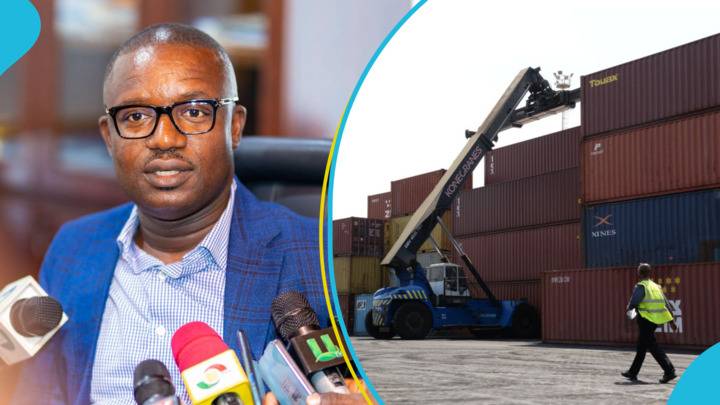Energy Minister Uncovers Missing ECG Containers in Tamale Warehouse
A Major Breakthrough in Ghana's Energy Sector
In a significant development for Ghana's energy sector, the Minister for Energy and Green Transition, John Abdulai Jinapor, has confirmed the discovery of 40 missing containers belonging to the Electricity Company of Ghana (ECG) in a warehouse located in Tamale. This revelation comes amid ongoing efforts to address procurement inefficiencies and financial mismanagement within the ECG.
Background: ECG's Procurement Challenges
The ECG has faced scrutiny over its procurement practices, with reports indicating that approximately 2,500 containers procured by the company remained uncleared at Ghana's ports, accruing demurrage charges estimated at GHS 1.5 billion. These containers, containing critical electrical equipment, were left unattended, raising concerns about operational inefficiencies and financial losses within the company.
The Discovery in Tamale
The recent discovery of the 40 containers in Tamale has shed light on the extent of the ECG's logistical and managerial challenges. The containers, which were previously unaccounted for, contain essential electrical materials intended to support Ghana's power infrastructure. The Energy Minister's confirmation of their location marks a pivotal step towards resolving the issues surrounding the ECG's asset management.
Government's Response and Investigations
In response to these findings, Minister Jinapor has established a five-member committee tasked with investigating the circumstances that led to the accumulation of uncleared containers and the misplacement of assets such as those found in Tamale. The committee is expected to delve into the ECG's procurement practices, assess the financial implications, and recommend measures to prevent future occurrences.
Furthermore, the government has initiated criminal investigations to identify and prosecute individuals responsible for the mismanagement and potential misappropriation of the ECG's assets. This move underscores the administration's commitment to transparency and accountability within the energy sector.
Implications for Ghana's Energy Sector
The uncovering of the missing containers and the subsequent government actions have several implications for Ghana's energy sector:
Enhanced Accountability: The investigations signal a renewed focus on accountability, ensuring that public resources are managed effectively and responsibly.
Operational Efficiency: Recovering the missing equipment enables the ECG to utilize these assets to improve electricity distribution and infrastructure development.
Policy Reforms: The findings may prompt policy reforms aimed at strengthening procurement processes and asset management within state-owned enterprises.
Public and Stakeholder Reactions
The discovery has elicited varied reactions from the public and stakeholders within the energy sector. Many have expressed relief that the missing containers have been located, while others remain concerned about the systemic issues that allowed for such discrepancies to occur. Energy sector analysts have called for comprehensive reforms to address the root causes of mismanagement and to enhance the efficiency of the ECG's operations.
The Path Forward
As the investigations proceed, it is imperative for the government and the ECG to implement the recommendations provided by the investigative committee. This includes adopting stringent procurement guidelines, improving inventory management systems, and ensuring regular audits to prevent future misplacements or losses of critical assets.
Moreover, fostering a culture of transparency and accountability within the ECG and other state-owned enterprises will be crucial in restoring public trust and ensuring the sustainable development of Ghana's energy sector.
Conclusion
The confirmation of the 40 missing ECG containers found in a Tamale warehouse marks a significant milestone in addressing the challenges facing Ghana's energy sector. While this discovery highlights past inefficiencies, it also presents an opportunity for systemic reforms aimed at enhancing operational effectiveness and financial accountability within the ECG. The government's proactive measures in investigating and addressing these issues demonstrate a commitment to ensuring that Ghana's energy infrastructure is managed in a manner that benefits all citizens.
As the nation moves forward, it is essential that these efforts are sustained, with continuous monitoring and evaluation to prevent the recurrence of such challenges. By doing so, Ghana can build a robust and reliable energy sector capable of supporting its developmental aspirations.


